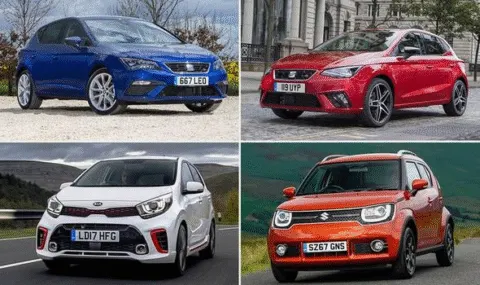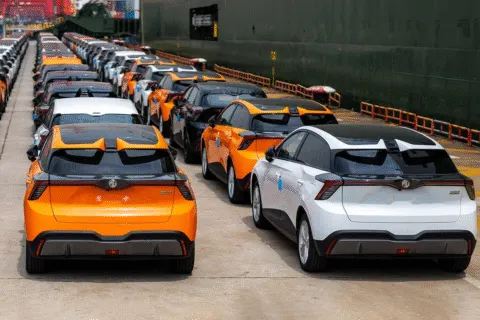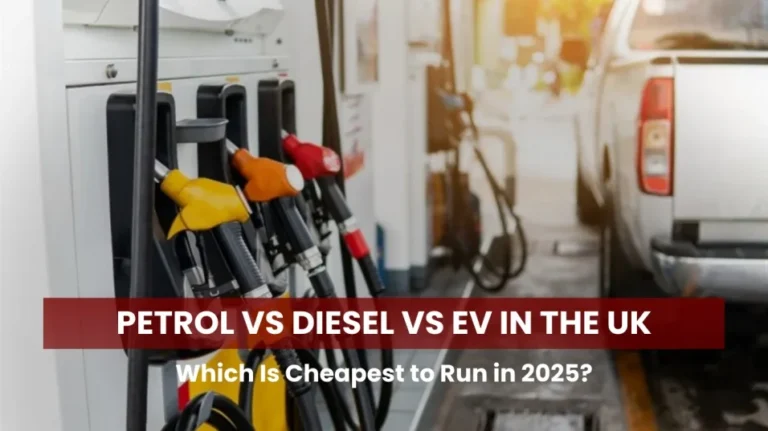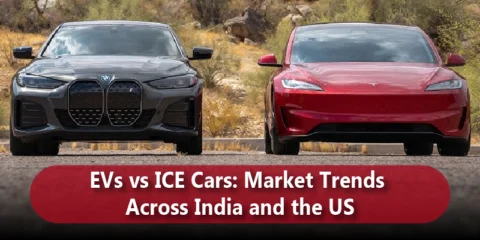With the sheer number of electric cars that have been taking over the streets in the UK, there’s been a lot of talk about which are the cheapest cars for daily commutes. With fuel prices jumping up and down, electricity bills changing, and taxes on older vehicles creeping higher, I thought I’d take a look at whether it’s actually cheaper to run a petrol, diesel, or EV in the UK in 2025.
Petrol Cars

Despite the rising fuel prices and the growing popularity of electric cars, petrol cars have failed to lose their relevance on UK streets. It’s probably because of the simplicity associated with petrol cars. All you need to do is fill up and drive off. Repairs for these cars don’t usually break the bank. And they still tend to be priced cheaper than EVs. However, in September 2025, the cost of unleaded petrol is hovering around £1.33 per litre in many parts of the UK. A small hatchback doing about 45 mpg works out at roughly 13–14p per mile. Besides, there’s also road tax to consider, and with the shift towards greener rules, newer petrol models are getting higher first-year charges.
Diesel Cars
Diesel used to be the go-to choice for long-distance drivers. The engines need less fuel per mile, often giving 55–60 mpg or more. Even with diesel sitting around £1.47 per litre, you would still have a frugal saloon doing around 11–12p per mile. Then there’s the catch of higher road tax for some diesel models, stricter emission rules, and extra charges in clean air zones across cities like London and Birmingham. That would make me think twice, especially if most of my driving is in town.
EVs

This is where things get interesting. Charging at home overnight with an off-peak tariff can drop the running cost to about 6–7p per mile, obviously much lower than petrol and diesel cars. Even on standard Tariff rates, it usually works out to under 10p. Public rapid chargers are more expensive, closer to 60–70p per kWh, which works out more like 16–18p per mile, which is slightly higher than for petrol. Road tax changes in 2025 mean EVs are no longer able to avoid Vehicle Excise Duty, but it’s still cheaper than for many petrol or diesel cars. However, for most EV owners, the real win is skipping fuel stations and topping up at home.
So, Which Comes Out Cheapest?
After all the number crunching, these are the points that stand out:
- For daily city use with home charging, EVs are clearly the most affordable.
- For long motorway trips without home charging, diesels still edge ahead if you’re driving hundreds of miles a week.
- For balanced use with mixed trips, petrol cars sit in the middle. These are not the cheapest, but not as restricted as diesel in clean air zones.
Summing Up
So, if you have a driveway and can ensure home charging, go electric. It makes financial sense, and the convenience is hard to beat. For drivers clocking up motorway miles, diesel still has an edge in 2025, but I wouldn’t want the hassle of extra charges in towns. Petrol feels like the flexible option if you’re not ready for a plugin yet, but the fuel costs can add up quickly.
Essentially, the cheapest to run in 2025 depends a lot on your driving habits and where you live, but the gap between the three types is considerable and clearer than ever.
Still unsure which type of car would fit your lifestyle? Head over to Ask About Cars for the tips and advice before making the switch.







